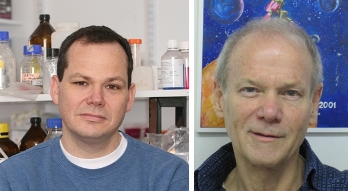The Application Company, the commercial arm of the Hebrew University, will present as part of the ILSI-Biomed 2011 conference and exhibition, which will be held in Tel Aviv between May 23-25

Researchers from the Hebrew University have discovered a new mechanism by which tumor cells penetrate tissues and begin to metastasize. According to the researchers, the discovery opens a window for the early diagnosis of malignant tumors and its ability to help develop a suitable drug for cancer treatment.
The ability of tumor cells to penetrate tissues differentiates cells of benign tumors from cells of malignant tumors. Therefore, an understanding of how the tumor cells penetrate the tissues makes it possible to diagnose cancer malignancy at an early stage and understand the therapeutic options.
The authors of the study, Prof. Yanon Ben-Naria and Dr. Eli Pikarski from the Israel-Canada Medical Research Institute of the Hebrew University and Hadassah, found that tumors penetrate the tissues following the simultaneous awakening of gene clusters in the tumor cells. According to the research findings, mutations that appear in advanced stages of the benign tumor neutralize the P53 gene, which is considered a cancer suppressor gene, thereby releasing a cluster of genes known as PSIS. According to the researchers, it is the joint action of the PSIS gene pool that enables the penetration of tumor cells and drives the process of malignancy.
The research refutes the common assumption that tumor cells become invasive because of mutations that give the cancer cells invasive properties that accelerate the spread the cancer and the metastases. Also, the study sheds light on the early stages of the malignancy process that were not recognized until now. "We found that the P53 gene is able to suppress the infiltration of tumors and thus it prevents benign tumors from turning into dangerous malignant tumors in the intestinal cells and other tissues," explains Prof. Ben-Naria.
The discovery is the result of the work of two research students in Prof. Ben-Naria's laboratory, Ella Elide and Ariel Pribloda, who were able to track in real time the infiltration of tumor cells in a mouse model that developed intestinal cancer within days and locate the factors involved in the process.
The findings of the research that was recently published in the prestigious journal Nature may have significant implications for the diagnosis and treatment of colon cancer and other types of cancer. The identification of the invading genes may promote early diagnosis of malignant tumors and their differentiation from benign tumors which is currently based mainly on morphological diagnosis, that is, on examining the shape of the cells and tissue.
"An accurate diagnosis of tumors at an early stage of the malignancy process can help save human lives from violent cancers and prevent unnecessary amputation of an organ as a result of a misdiagnosis," emphasizes Dr. Pikarski. "Furthermore, the research may enable drug development that will stimulate the activity of the P53 gene."
The invention is protected as a patent by Application, the technology commercialization company of the Hebrew University, which is currently looking for commercial partners to continue the research and development process.
